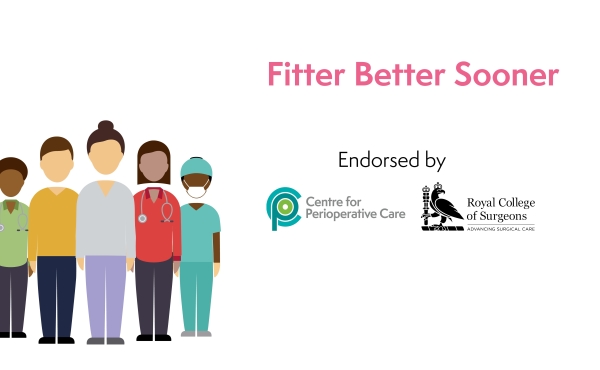Government funding to build back the NHS will fail if systemic issues with patient care are not addressed
Following the announcement of a £5.9 billion investment in the NHS ahead of the Spending Review, health leaders are calling for the NHS to use some of this money to invest in joined up care that promotes better patient outcomes at a reduced spend.
With 5.7 million patients waiting to start treatment, the Centre for Perioperative Care, a partnership between nine health organisations including the Royal Colleges of Anaesthetists, Surgeons of England, Physicians, GPs, and Nursing is asking the government to establish ten pathfinder projects across the UK, to identify, consolidate and amplify patient journeys from contemplation of surgery to recovery.
The aim is to cut waiting lists through increasing day surgery, using waiting time to get patients properly prepared physically and mentally for surgery, and empowering patients to consider whether surgery is really their best option. Turning a patient’s waiting time on a list into best possible preparation time; waiting lists into preparation lists.
Good perioperative care can address all four aims of the NHS long-term plan, including improving quality of care, increasing satisfaction and experience, improving the health of the population and improving staff satisfaction, all while reducing the cost of health care.
Dr David Selwyn, Director of the Centre for Perioperative Care said:
“The government’s health and social care plan ‘Build Back Better’ and the funding announced is a welcome start in the attempt to recover the NHS, however without investing in new ways of delivering patient care it will ultimately fail.”
“There is mounting evidence that the surgical pathway can be made more efficient and better for the patient - from the moment they contemplate surgery until they complete their recovery. We need to turn waiting lists into preparation lists – by helping patients get fit ahead of surgery. We need to transform NHS procedures so patients can be seen in just one day. And we need to ensure discharge is planned, empowering people with information, and ensuring nobody falls through the gaps between health and social care.”
“These factors not only improve patient outcomes, but also make significant financial sense. If we put our efforts into delivering care differently which reduces recovery times, cuts complications, and lowers the risk of readmission, we will free up beds, free up the workforce and lower the rate of cancelled operations, ultimately delivering a more cost-effective better NHS.”
“In order to deliver on our aims for more efficient and effective patient centred care, we need a joined-up system across the country. While pockets of good practice exist in the NHS, these are not uniform, with patient’s encountering a postcode lottery. If the government delivers on our ask to fund pathfinders, who will be a leading voice for change in the healthcare sector, we can finally embed these practices and deliver meaningful and transformation healthcare change, thereby improving the sustainability of the NHS for years to come.”
The proposal is to establish ten perioperative pathfinders across the United Kingdom which reflect the latest evidence and best practice from around the world. Seven would be based in Integrated Care Systems in England and three health bodies in Scotland, Wales and Northern Ireland. The pathfinders will become champions for truly joined-up, patient-focused perioperative care. They will utilise the whole range of workforce, including clinical and non-clinical professionals and skilled non-registered staff, working across health services to create clear pathways for patients.
Around 10 million people have surgery in the UK each year, with the elective care bill at £16 billion. Every extra day a patient spends in hospital costs the NHS approximately £3501, increasing day surgery could see the number of elective patients requiring an overnight stay in hospital cut by 50%2. Similarly with 10-15 percent of surgical patients currently suffering complications post-surgery, encouraging patients to use their waiting time to prepare for surgery has been shown to reduce complications by 30 - 80% and reduce length of stay for more complex operations by 1-2 days3. Freeing up inpatient beds, lowering costs and helping to tackle the significant elective surgery waiting lists.
Delivering care which puts the patient at the centre, treating the whole person not just the condition, has the added benefit of empowering them to take more control over their health. Patient regret after surgery is common, currently shown to be at 14%4 but by intervening early, making the treatment option a two-way conversation patients and sharing the decision making, patients will get the care they as well as the clinicians are happy with.
References
1. NHS Improvement Reference costs 2016/17 published November 2017.
2. GIRFT, CPOC, and BADS (2020) National Day Surgery Delivery Pack, National-Day-Surgery-Delivery-Pack_Sept2020_final.pdf (gettingitrightfirsttime.co.uk)
3. Impact of perioperative care on healthcare resource use: Rapid research review – June 2020
4. Regret in Surgical Decision Making: A Systematic Review of Patient and Physician Perspectives – February 2017



